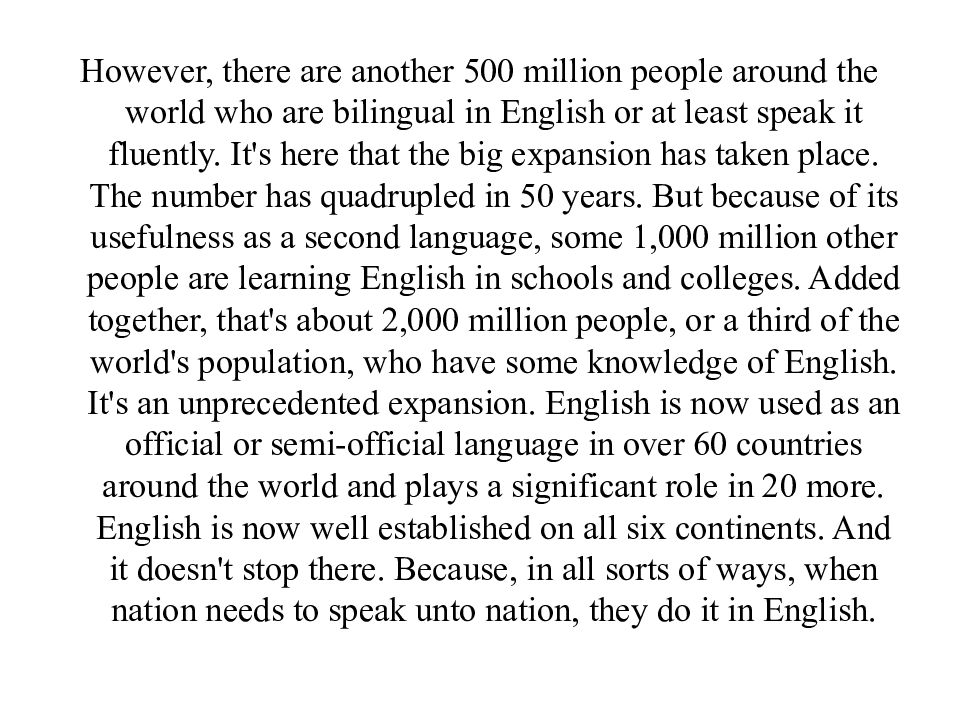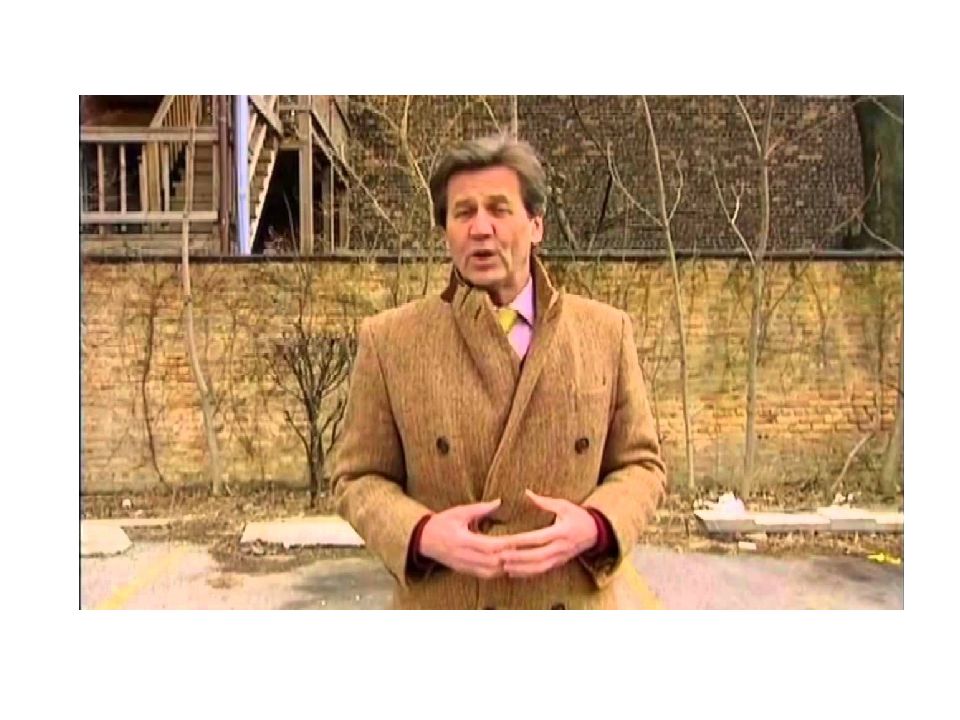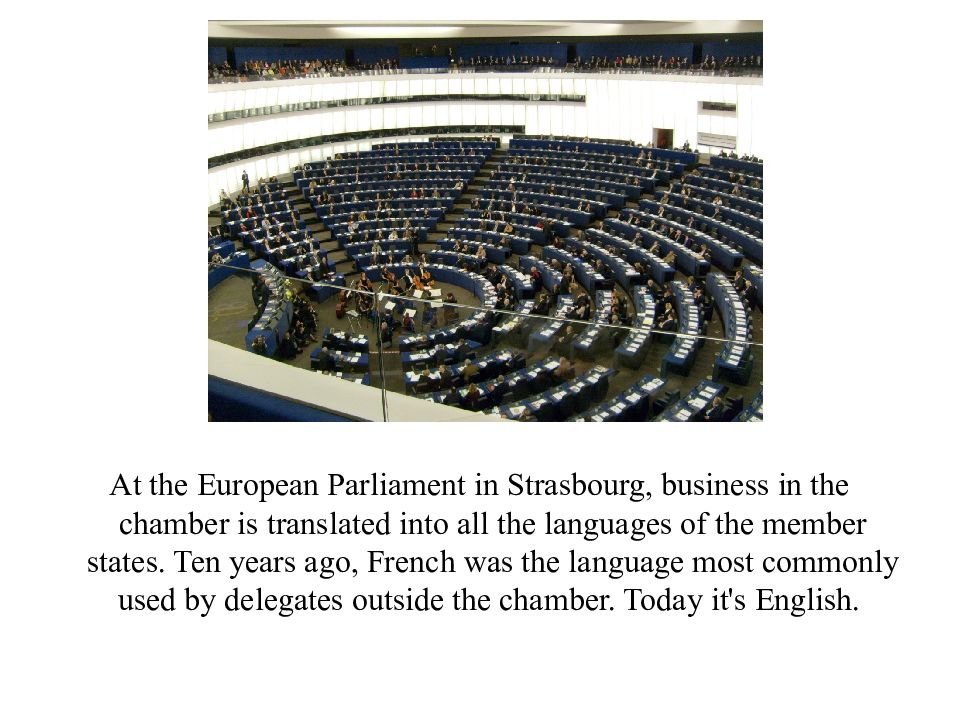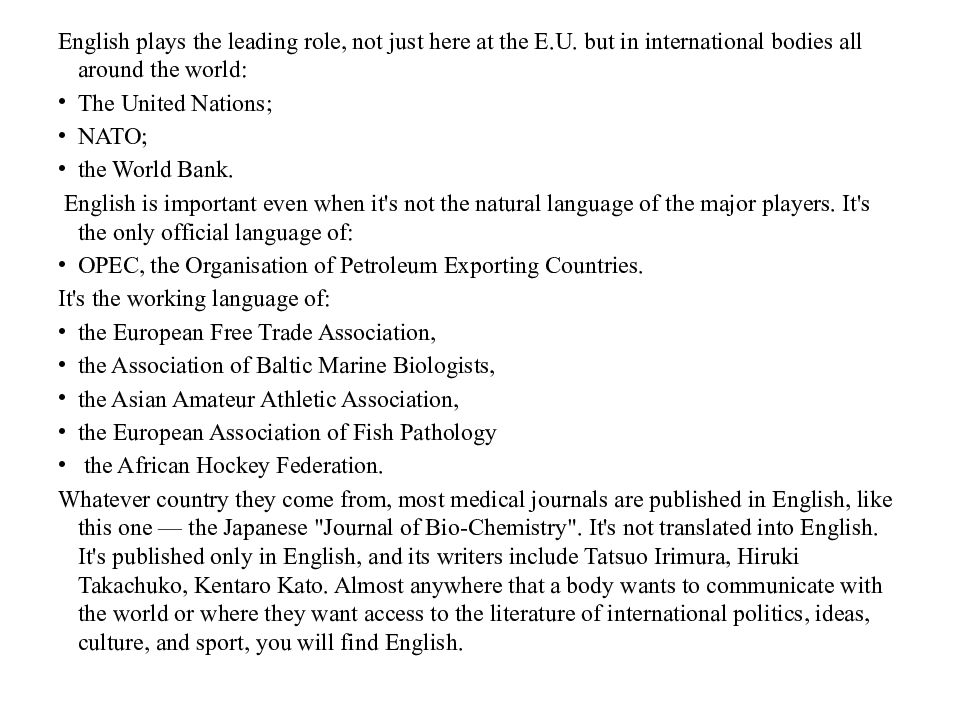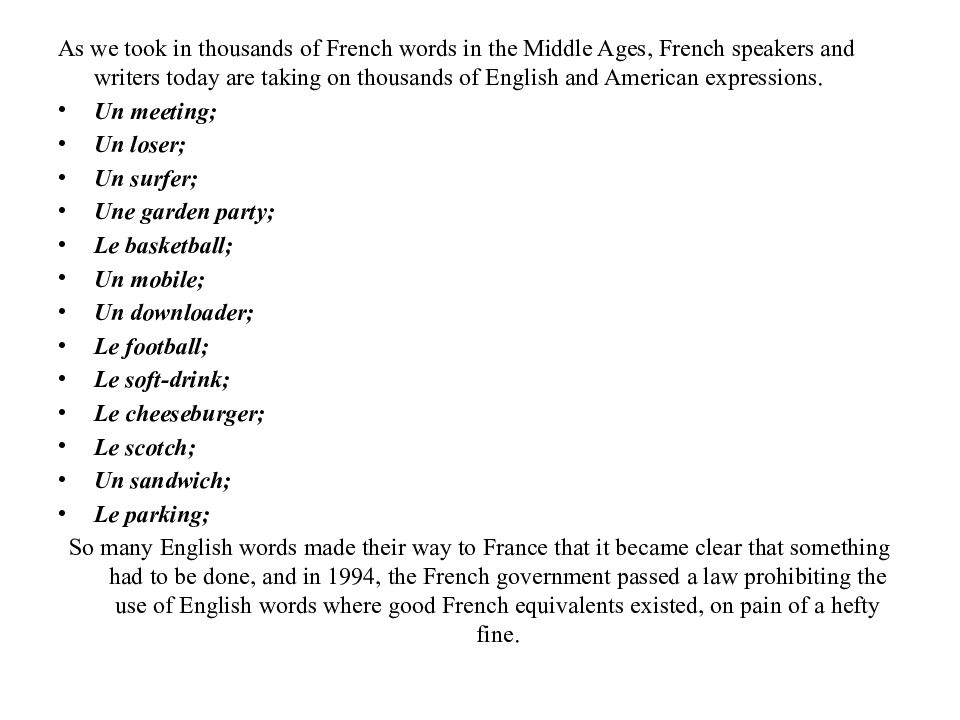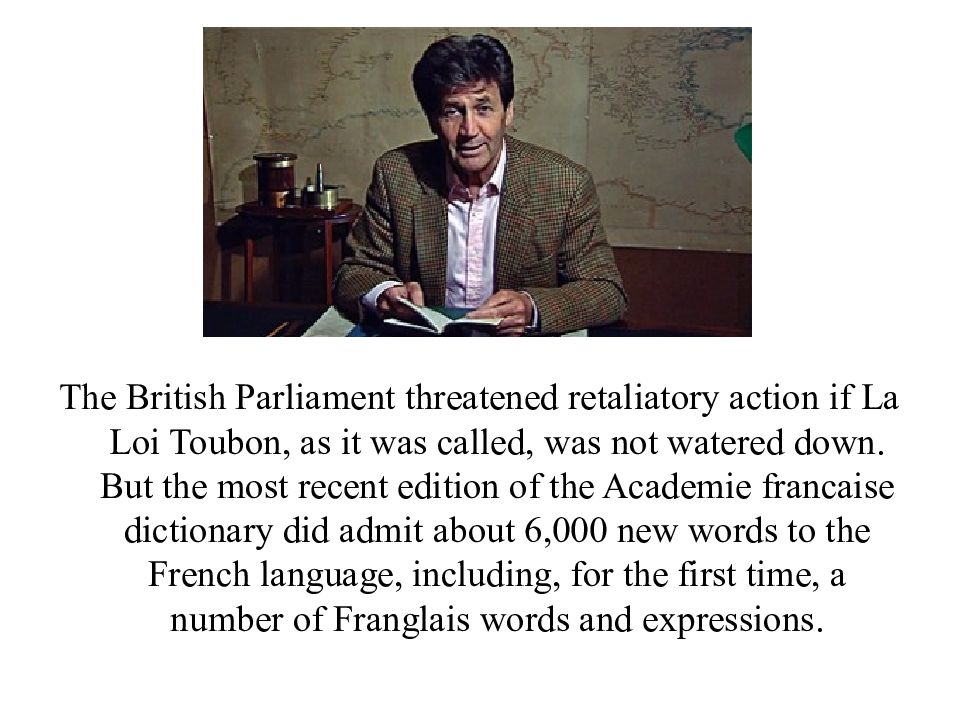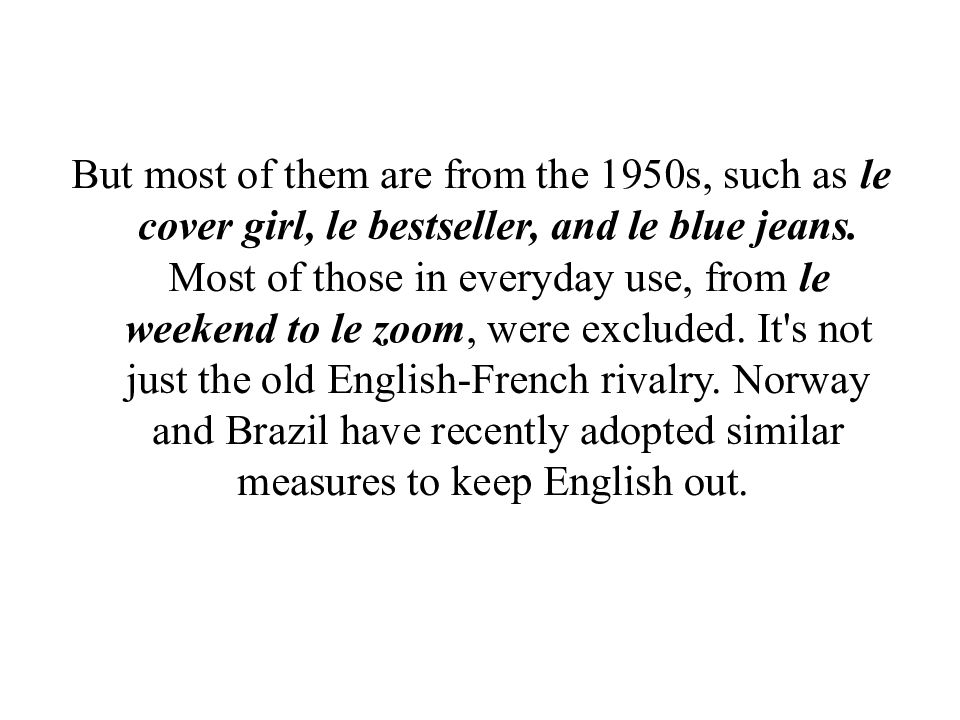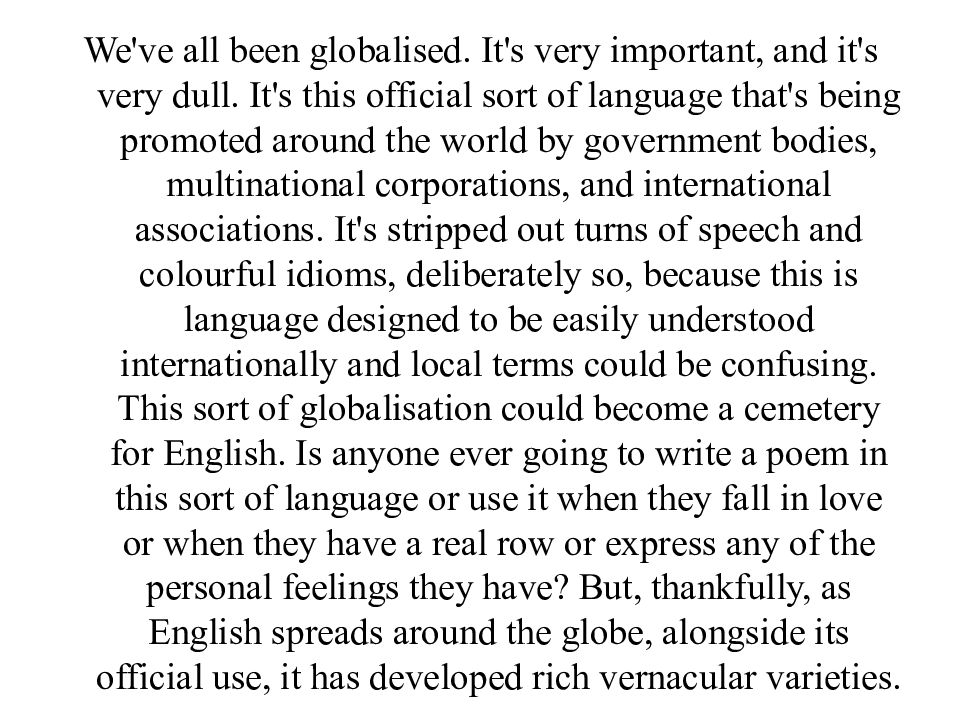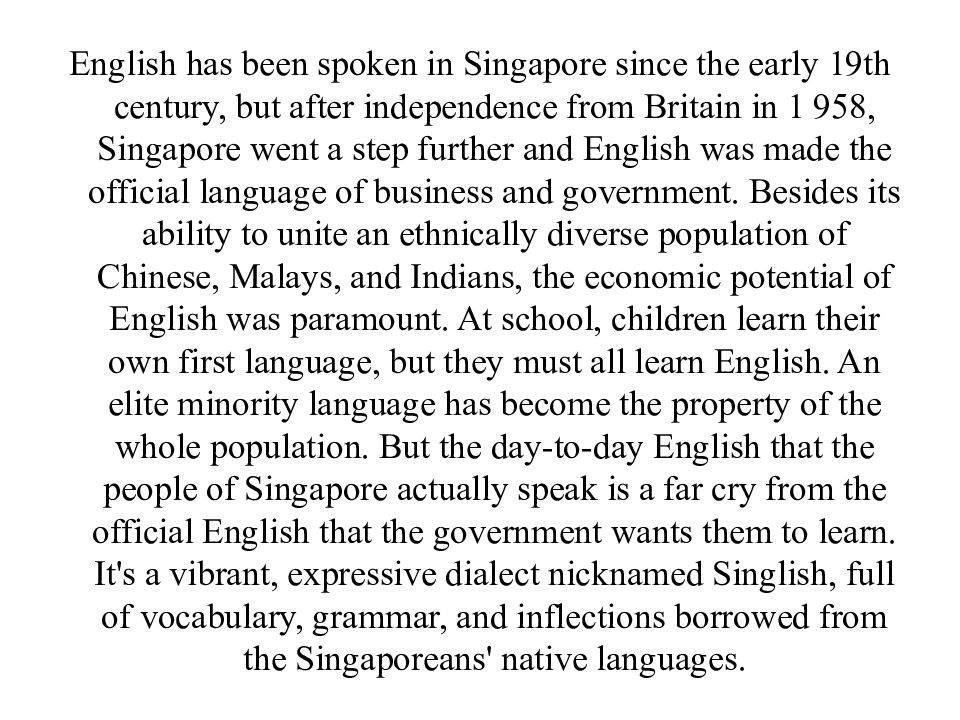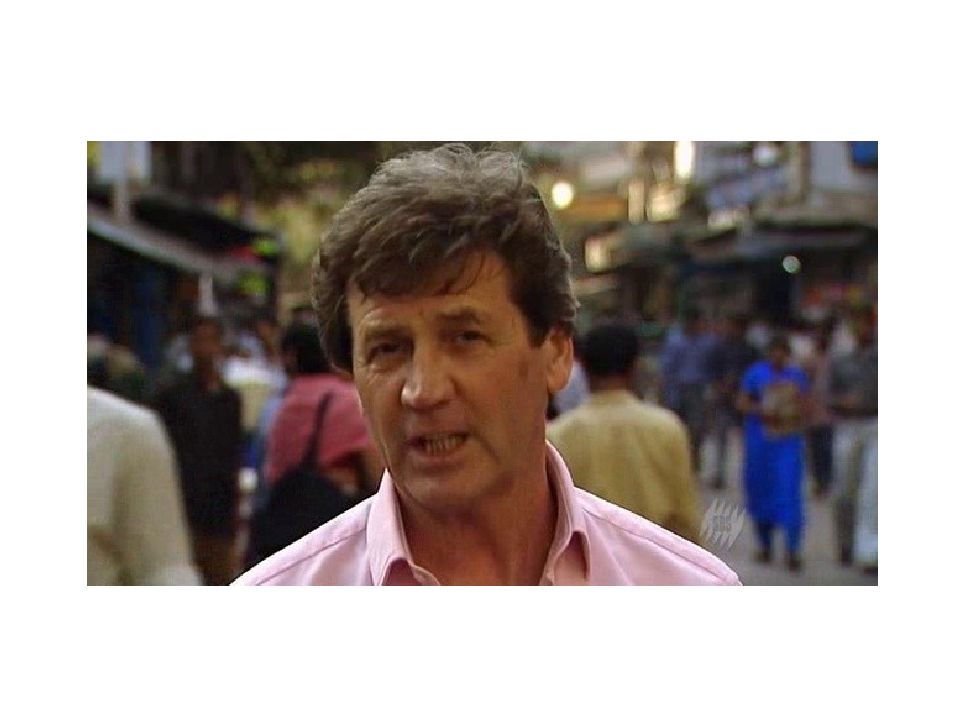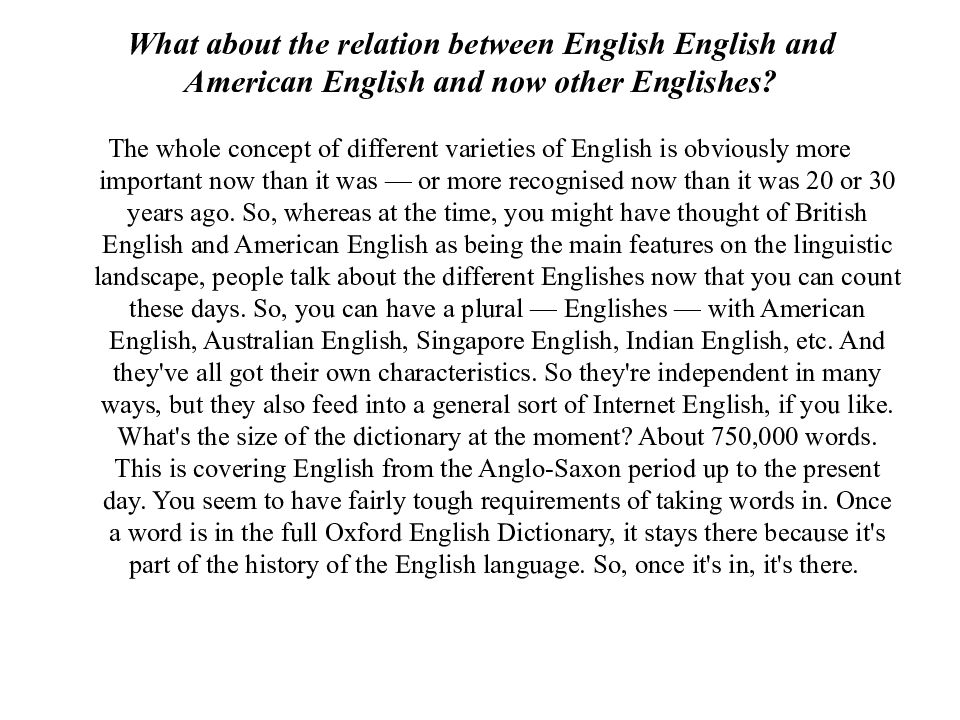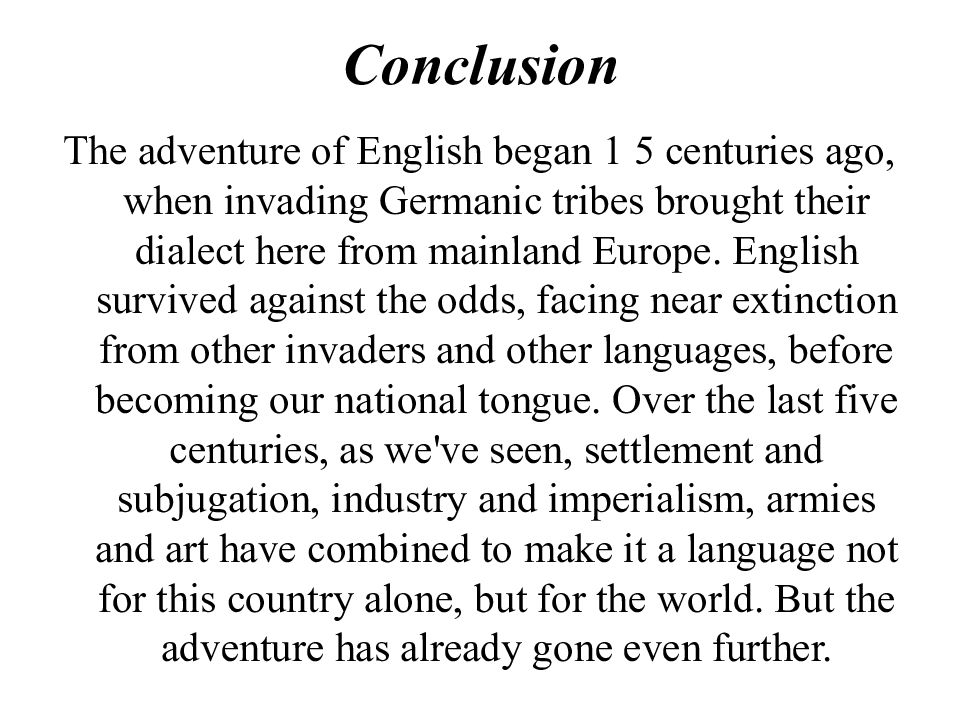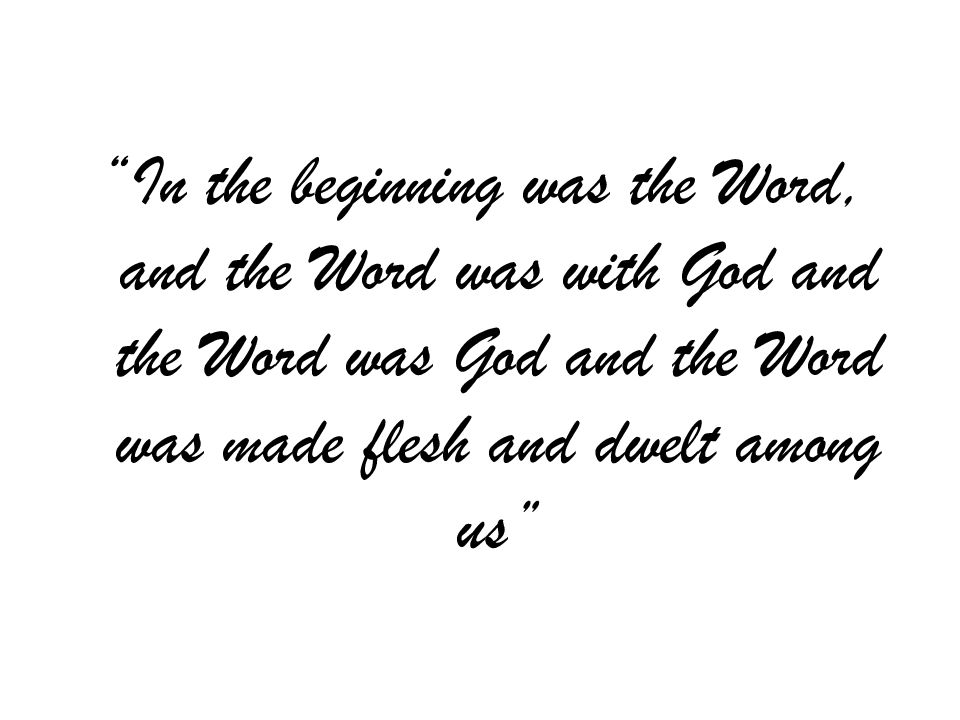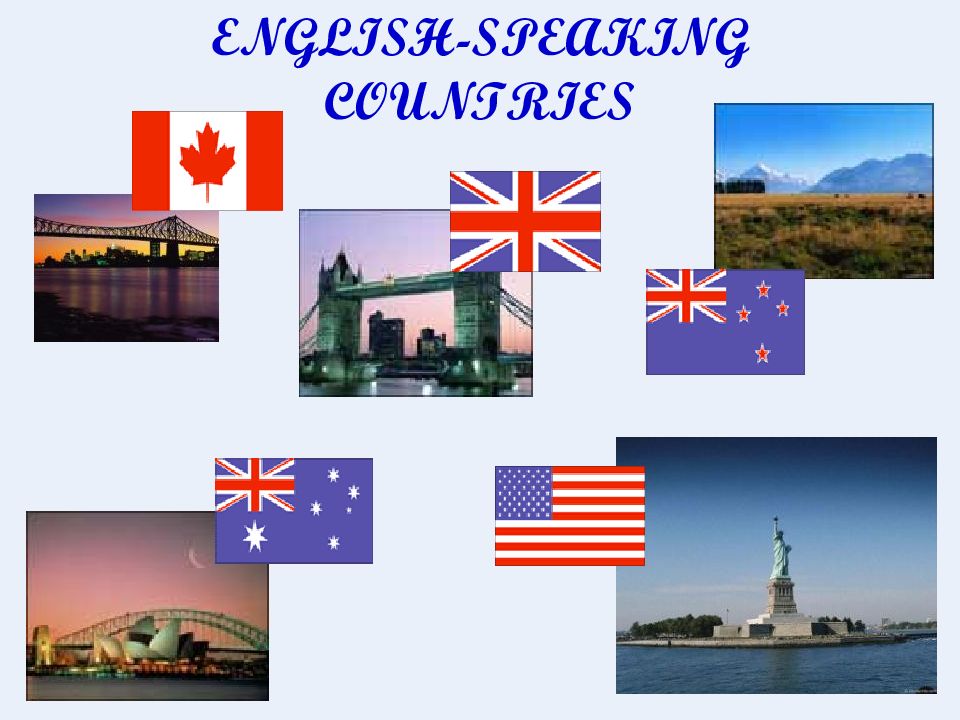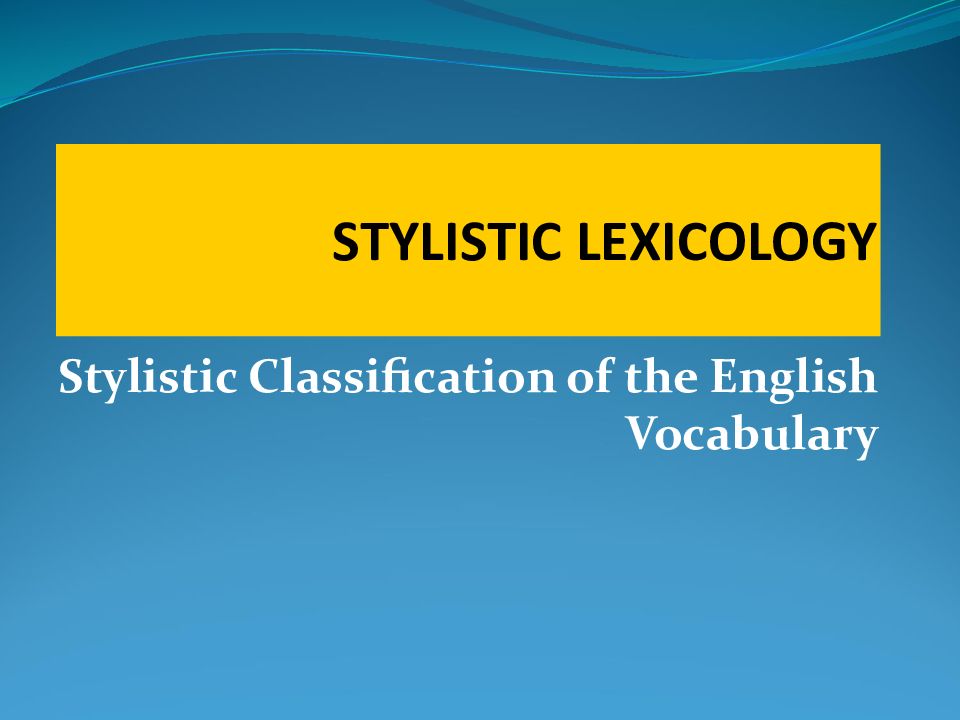Первый слайд презентации
However, there are another 500 million people around the world who are bilingual in English or at l east speak it fluently. It's here that the big expansion has taken place. The number has quadrupled in 50 years. But because of its usefulness as a second language, some 1,000 million other people are learning English in schools and colleges. Added together, that's about 2,000 million people, or a third of the world's population, who have some knowledge of English. It's an unprecedented expansion. English is now used as an official or semi-official language in over 60 countries around the world and plays a significant role in 20 more. English is now well established on all six continents. And it doesn't stop there. Because, in all sorts of ways, when nation needs to speak unto nation, they do it in English.
Слайд 3
At the European Parliament in Strasbourg, business in the chamber is translated into all the languages of the member states. Ten years ago, French was the language most commonly used by delegates outside the chamber. Today it's English.
Слайд 5
English plays the leading role, not just here at the E.U. but in international bodies all around the world: The United Nations; NATO; the World Bank. English is important even when it's not the natural language of the major players. It's the only official language of: OPEC, the Organisation of Petroleum Exporting Countries. It's the working language of: the European Free Trade Association, the Association of Baltic Marine Biologists, the Asian Amateur Athletic Association, the European Association of Fish Pathology the African Hockey Federation. Whatever country they come from, most medical journals are published in English, like this one — the Japanese "Journal of Bio-Chemistry". It's not translated into English. It's published only in English, and its writers include Tatsuo Irimura, Hiruki Takachuko, Kentaro Kato. Almost anywhere that a body wants to communicate with the world or where they want access to the literature of international politics, ideas, culture, and sport, you will find English.
Слайд 6
As we took in thousands of French words in the Middle Ages, French speakers and writers today are taking on thousands of English and American expressions. Un meeting ; Un loser; Un surfer; Une garden party; Le basketball; Un mobile; Un downloader; Le football; Le soft-drink; Le cheeseburger; Le scotch; Un sandwich; Le parking; So many English words made their way to France that it became clear that something had to be done, and in 1994, the French government passed a law prohibiting the use of English words where good French equivalents existed, on pain of a hefty fine.
Слайд 7
The British Parliament threatened retaliatory action if La Loi Toubon, as it was called, was not watered down. But the most recent edition of the Academie francaise dictionary did admit about 6,000 new words to the French language, including, for the first time, a number of Franglais words and expressions.
Слайд 8
But most of them are from the 1950s, such as le cover girl, le bestseller, and le blue jeans. Most of those in everyday use, from le weekend to le zoom, were excluded. It's not just the old English-French rivalry. Norway and Brazil have recently adopted similar measures to keep English out.
Слайд 9
We've all been globalised. It's very important, and it's very dull. It's this official sort of language that's being promoted around the world by government bodies, multinational corporations, and international associations. It's stripped out turns of speech and colourful idioms, deliberately so, because this is language designed to be easily understood internationally and local terms could be confusing. This sort of globalisation could become a cemetery for English. Is anyone ever going to write a poem in this sort of language or use it when they fall in love or when they have a real row or express any of the personal feelings they have? But, thankfully, as English spreads around the globe, alongside its official use, it has developed rich vernacular varieties.
Слайд 11
English has been spoken in Singapore since the early 19th century, but after independence from Britain in 1 958, Singapore went a step further and English was made the official language of business and government. Besides its ability to unite an ethnically diverse population of Chinese, Malays, and Indians, the economic potential of English was paramount. At school, children learn their own first language, but they must all learn English. An elite minority language has become the property of the whole population. But the day-to-day English that the people of Singapore actually speak is a far cry from the official English that the government wants them to learn. It's a vibrant, expressive dialect nicknamed Singlish, full of vocabulary, grammar, and inflections borrowed from the Singaporeans' native languages.
Слайд 13: What about the relation between English English and American English and now other Englishes ?
The whole concept of different varieties of English is obviously more important now than it was — or more recognised now than it was 20 or 30 years ago. So, whereas at the time, you might have thought of British English and American English as being the main features on the linguistic landscape, people talk about the different Englishes now that you can count these days. So, you can have a plural — Englishes — with American English, Australian English, Singapore English, Indian English, etc. And they've all got their own characteristics. So they're independent in many ways, but they also feed into a general sort of Internet English, if you like. What's the size of the dictionary at the moment ? About 750,000 words. This is covering English from the Anglo-Saxon period up to the present day. You seem to have fairly tough requirements of taking words in. Once a word is in the full Oxford English Dictionary, it stays there because it's part of the history of the English language. So, once it's in, it's there.
Слайд 14: Conclusion
The adventure of English began 1 5 centuries ago, when invading Germanic tribes brought their dialect here from mainland Europe. English survived against the odds, facing near extinction from other invaders and other languages, before becoming our national tongue. Over the last five centuries, as we've seen, settlement and subjugation, industry and imperialism, armies and art have combined to make it a language not for this country alone, but for the world. But the adventure has already gone even further.
Слайд 15
“In the beginning was the Word, and the Word was with God and the Word was God and the Word was made flesh and dwelt among us”
